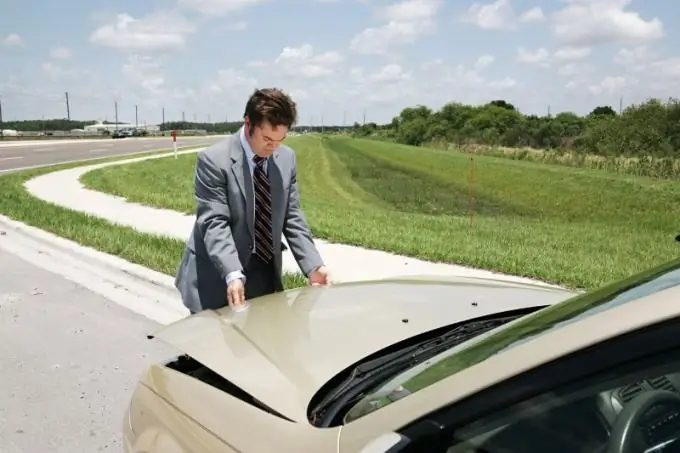- Author Maria Gibbs gibbs@autolifeadvice.com.
- Public 2023-12-16 03:05.
- Last modified 2025-01-22 17:47.
A working battery is a guarantee that you can start the car without any problems. However, a car battery tends to be discharged. And if this happens too quickly, you may one day find yourself in a situation where your car won't start when you turn the ignition key. Why can the battery drain quickly?

If the battery is discharged, this does not mean that it is defective. Even a new battery can lose up to ten percent of its capacity in 2 weeks of storage in a warehouse. What to say about batteries that have been in operation for several years.
This device can be discharged by the type of self-discharge and from connected consumers. Car owners are more concerned with the self-discharge process, that is, one that is due to internal reactions.
The self-discharge rate can increase from the short circuit of the battery terminals on the surface due to contamination and the closure of the crumbling mass of the plates. The self-discharge accelerates the parasitic currents arising from the ingress of impurities with the electrolyte, and different densities of the electrolyte in the upper and lower layers.
To reduce the self-discharge rate, you need to keep the plane with the terminals of the battery poles clean. It should be ensured that discharging and charging the battery does not lead to strong shedding of the mass of the plates. You must always monitor the contacts, they should not dangle, and the terminals must be carefully cleaned. The car alarm must be connected correctly.
The root causes of severe battery discharge are very simple. These are current leaks in the car's electrical network, a faulty generator or voltage regulator and prolonged use of energy with the engine turned off.
All drivers know that in the cold season, when the temperature outside is very low, the battery spins up the starter worse. This is because lowering the electrolyte temperature at temperatures below 15 degrees decreases the battery capacity by one percent (for each subsequent degree). For example, if the frost is fifteen degrees outside, then the battery capacity is reduced by as much as forty percent. Therefore, in cold weather, the engine must start without problems, otherwise the battery will not be able to ensure the long-term operation of the starter.






